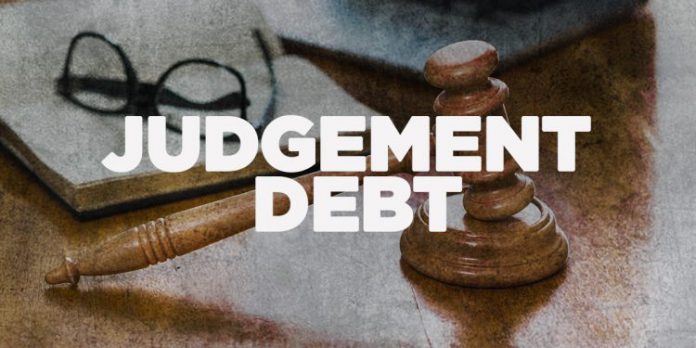Dealing with the judgment debt ‘conundrum’: AG’s office needs ‘wholesome reform’-CSJ
The issue of judgment debt is one of great concern to the State and Ghanaians alike.

“The Attorney General’s Office should embark on wholesale reform, which should look at the overall vision and mission while addressing matters such as strategy structure systems and processes across the board.”
The above is a statement made at a forum organized on Thursday, July 1, 2021,by the Centre for Social Justice on the topic;
‘A 20-year review of judgment debt payments in Ghana: Impact, Causes, and Remedies.’
A Fellow for Finance and Economy at CSJ, Dr. Theresa Mannah-Blankson echoed the need to reform the AG’s office to reduce Ghana’s increasing judgment debts
CSJ, which is an activist group for social change, released at the forum, a 37- page report on how the Nation can deal with the issue of judgment debts.
According to the report, the Nation paid judgment debt to the tune of 1.89 billion cedis within the period of 19 years(2000-2019), which is currently equivalent to GH¢1,893.7 million cedis.
This amount, per the report, is about 112% of multilateral loans received by the government in 2019; 112% of 2019 central government grants, and 30% of the total health expenditure of the same year.
On the causes of the numerous judgment debts, the CSJ mentions contractural breaches as the major cause.
“Of the total, judgment debt payments arising from contractual breaches was GH¢1,384.7 million (73 percent), GH¢479.2 million from failure to promptly pay compensation for compulsory land acquisition by the State/Government (25 percent), and GH¢29.9 million (about 1.5 percent) from tortuous/statutory breaches by public officials.”
The report further makes mention of the lapses at the AG’s office, which is also a major contributory factor to the issue of judgment debts.
They cited the use of inexperienced lawyers, lack of coordination, over-reliance on paper for administrative tasks instead of technology, and lack of proactiveness as issues hampering the performance of AG’s office in dealing with issues of judgment debts.
To be able to achieve the needed reforms at the AG’s office, the CSJ laid out some ways of making the office robust. They include;
- Be subject to a systems review and audit by an external party, such as the Audit Service, which holds departments and individuals accountable for the loss.
- Setting out and measuring Key Performance Indicators which touch and concern judgment debt among other things.
- Having a performance appraisal that will measure and punish those who incur losses to the state.
- Having a government department-wide case management system that is plugged into the court system to inform lawyers of their impending cases.
- Establishing a dedicated department to solely arrest errant contracts, and be empowered where necessary to negotiate and renegotiate on behalf of the state.
The issue of judgment debt is one of great concern to the State and Ghanaians alike.
Government after government, one hears reports of the government being saddled with one judgment debt or the other.
The recent one being the $170 million GPGC judgment debt.
In February 2015 under the John Mahama Administration, Ghana signed a contract with the Ghana Power Generation Company (GPGC) at an initial amount of US$ 24.9 million per annum over four years. Thus amounting to US$99.6 million to provide a fast-track power-generation solution.
The Akuffo-Addo administration after taking office in 2016, expressed concern about what it described as “substantial excess” capacity and its effects on the public purse.
It, therefore, had several engagements with the GPGC especially on the movement of the power plant from Aboadze in the Western Region to Kpone in the Greater Accra Region.
However, on February 18, 2018, the GPGC deal was terminated by the GoG based on the Attorney General’s recommendations.
After what the GPGC described as the unlawful cancellation of its contract to produce electricity in 2018, they settled on international arbitration.
Furthermore, the government of Ghana was slapped with a 15 million Dollars judgment debt for illegal seizure of mining equipment by the Inter-ministerial task force on illegal mining.
Also, Ghana has been ordered by the London Court of International Arbitration to pay the sum of over US$69 million to the West Africa Gas Limited as the Recovery Fee over the termination of a Gas Sales Agreement (GSA) made on 9th October 2015.
The government is also required to pay the simple interest on this figure from 22nd April 2019, at the annual rate of 6.5% until payment.
Further to the above, GoG is to pay the legal and other costs of the WAGL in the sum of £200,000, as well as the arbitration costs in the sum of £153,108.88.


